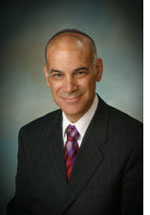
By Rabbi Leonard Rosenthal
SAN DIEGO — There is an old story told about a small yeshiva’s rowing team that never won a match. They finally decided to send an observer over to another school to see how they could improve their performance.
The volunteer returned and was excited to share his observations. “I know why their team wins and ours never does. They do the opposite of us. On their team only one person yells ‘stroke’ and everyone else pulls the oars!”
We often place high value on leadership and leadership abilities. We want our children to be leaders. We encourage them to develop the skills necessary to motivate others. We, ourselves, often wish to be seen at the head of the pack.
However, great leaders should never be judged on their leadership skills alone. One must always be concerned about the causes leaders support and the direction in which they are leading. Leadership talent, in the hands of the wrong individuals, can be deadly.
Korach, Hitler, Mussolini, and Osama bin Laden were all great leaders. Time Magazine even named Adolf Hitler as its “Man of the Year” in 1938. These evil human beings had great charisma as well as the ability to pull their followers together and inspire them to follow their examples. However, each of them caused infinite harm to humanity.
In parashat Ki Tavo Moses tells the Israelites if they follow God’s commandments, “The Lord will make you the head, not the tail; you will always be at the top and never at the bottom.” (Deut. 28:13)
Rabbi Abraham Joshua Heschel of Apta (1748-1825) took note of the redundancy in the verse. “If you will be the head,” he noted, “then you certainly will not be the tail! Why does the Torah make this explicit?”
He said that it is to teach us that there are times when it is better to be “tail” than it is to be a “head.” As we are warned in Pirkei Avot, “It is better to be a lion’s tail than the head of a fox.”
The Torah is telling us that if God does make us leaders, we should be careful where we are leading. We need to make sure that we are working for righteous causes, and not use our talents to create misery and woe.
The same can also be said for those of us who follow. We should not confuse talent and charisma with kindness and righteousness. As the Talmud also reminds us, we should not look at the container but rather at what it contains.
*
Rabbi Rosenthal is spiritual leader of Tifereth Israel Synagogue. He may be contacted at leonard.rosenthal@gcccd.edu